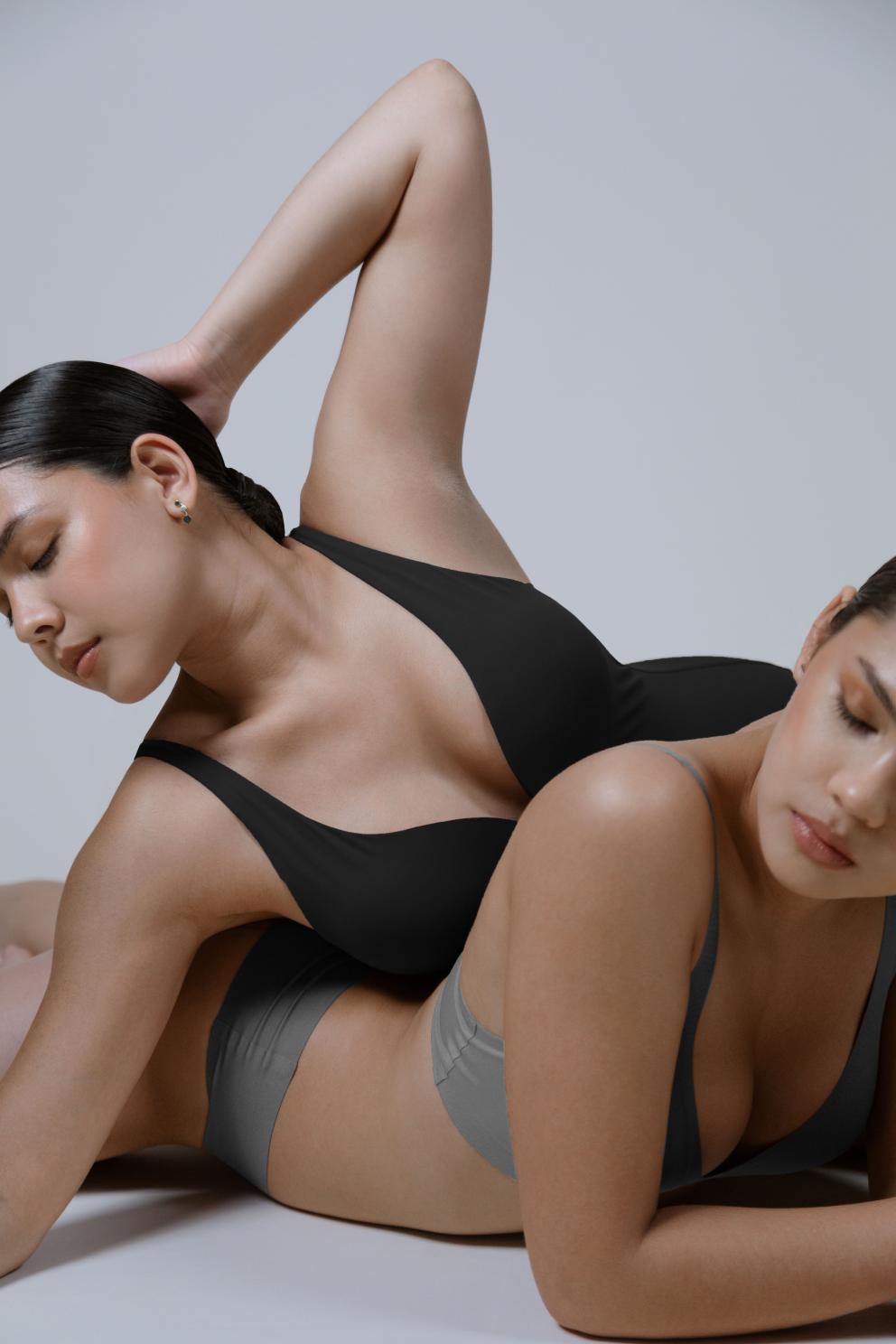Small Boobs:
Why you should Embrace Your Small Breasts


Harmony is a reflection of the beauty of life. It’s something we all seek in our lives and a natural state of balance that makes everything feel just right. And when it comes to women's bodies, there's a lot of diversity, uniqueness, beauty, even flaws, that make them perfect in their own way. In fact, harmony helps us reconnect with our inner selves bringing life into the world. This article focuses on the discussion on women’s bodies, specifically how small breasts are connected to harmony, well-being, and Femtech solutions. Exciting, isn't it? Let's explore this further!
Just like with anything else, some women love their boob size while others don't. But here's the thing: there's no "perfect" size or shape for boobs. Everyone has their own preferences and needs, and that's okay! Whether you feel your best with larger or smaller breasts, it's all about finding what works for you and makes you happy.
It's also imperative to recognize the impact of societal expectations on our perception of breasts. Over the years, the ideal changed from voluptuous curves in the 1950s to a more diverse range of sizes in the 1960s and so on. Today, many women choose to keep their small boobs, while others may opt for a reduction or a different approach altogether. The key is to find what feels harmonious and true to yourself, regardless of what others may think.
Ultimately, the most important thing is to embrace and celebrate our bodies, no matter their size or shape. We all deserve to feel comfortable and confident in our own skin, and it's up to each of us to find what that looks like for ourselves.
Are My Breasts Small?
Defining what constitutes "small boobs” can be a complex issue, as there are many factors at play, and there may not be a clear-cut definition. It's important to understand that breast size, shape, and cup size are largely influenced by genetics. Additionally, there are some medical conditions that can lead to the underdevelopment of the breasts, such as micromastia, which is defined as an abnormal smallness of the breast.1 Similarly, breast size can differ based on various factors, such as measurement techniques and proportion to body type. For example, a B cup may be considered normal for one body type, but small for another. Thus, it's key to understand that breast size is subjective and varies from person to person.
In addition, cultural and socio-demographic factors may affect this perception, according to the Breast Size Satisfaction Survey (BSSS),2 the largest cross-cultural survey on this matter so far, which surveyed women in 40 countries with an average age of 34.
Based on this survey, one may extrapolate that many countries have a different perspective on what represents very small breasts. While there are many reasons that can influence how one defines it, eventually the answer is personal to everyone.
Why you should Embrace your Small Breasts?
Some small-breasted women may feel emotionally affected and this can be due to a wide range of factors. For instance, the media often portrays a certain standard of beauty that is not necessarily an accurate representation of reality, including what is considered a "normal" breast size. Also, retouched pictures and unrealistic body standards can negatively impact women's confidence and self-esteem, leading to a sense of imbalance and disharmony within themselves.
BSSS, published on Elsevier, noted that two out of every three women on this planet, a total of 70.7%, feel dissatisfied with the size of their boobies. A total of 48% of survey participants desire a bigger bra size, while 23% would like a smaller size, and only 29% feel happy with their current size.3
Professor Viren Swami, who conducted the survey, is a well-known worldwide social psychologist specializing in body image and human appearance. In his research, he also found that breast size dissatisfaction is partly linked to both low self-esteem and levels of happiness, including poor psychological well-being.4
As the latter can’t obviously be associated with every woman, what is crucial for women to know is that there’s no one "right" breast size and that other women feel the same way. So, how to feel better?
Taking Action Beyond the Bra: guide, solutions and support
When feeling dissatisfied, women should remember that they are not alone:
- Creating Communities among Women: This is incredibly important as it provides a sense of safety, support, and belonging. Being part of a community of like-minded individuals can help women to feel heard, understood, and valued. This, in turn, can lead to improved well-being and happiness.
- Focusing on Self-Acceptance and Well-being: Having really small boobs shouldn’t be a stigma. Taking steps towards self-acceptance can have a huge impact on our well-being and how we feel about our bodies, especially when it comes to breast health. BSSS found that feeling unhappy about breast size can lead to avoidance behaviors that could harm our breast health, especially if we feel anxious or embarrassed.5 But don't worry! There are many ways to practice self-acceptance. From celebrating our strengths to cultivating self-compassion, becoming more self-aware and adopting positive practices, all can help us feel more comfortable and confident in our own skin. 6
- Normalizing Discussions Around Breast Health Aesthetics: Becoming knowledgeable about the solutions provided by the Femtech industry is super important for women. My Breast Harmony Movement is on a mission to empower women to take care of their bodies and minds. By starting open dialogues about breasts, we aim to help women make informed decisions that align with their best interests.
At the End of the Day, it's about increasing awareness and taking action to find balance and harmony in all aspects of life—for physical, emotional, and mental well-being. This extends beyond just our bodies, but also to work, relationships, friendships, communities, and our innate connection with our nature and inner selves.
So, it’s time to break the ice and get real about boobs. Let's have a heart-to-heart and share how we really feel about them. Let’s support each other and talk!
References
- (n.d.) Miller-Keane Encyclopedia and Dictionary of Medicine, Nursing, and Allied Health, Seventh Edition. (2003). Retrieved May 4 2023 from https://medical-dictionary.thefreedictionary.com/micromastia
- The Breast Size Satisfaction Survey (BSSS): Breast size dissatisfaction and its antecedents and outcomes in women from 40 nations, Virem Swami and other authors. Body Image, Volume 32, March 2020, https://www.sciencedirect.com/science/article/pii/S1740144519303900
- The Breast Size Satisfaction Survey (BSSS): Breast size dissatisfaction and its antecedents and outcomes in women from 40 nations, Virem Swami and other authors. Body Image, Volume 32, March 2020, https://www.sciencedirect.com/science/article/pii/S1740144519303900
- Professor Viren Swami, Professor of Social Psychology Story Lab, Anglia Ruskin University website, profile and (BSSS) study key findings retrieved from https://www.aru.ac.uk/people/viren-swami (n.d.).
- Professor Viren Swami, Professor of Social Psychology Story Lab, Anglia Ruskin University website, profile and (BSSS) study key findings retrieved from https://www.aru.ac.uk/people/viren-swami (n.d.).
- What Is Self-Acceptance? 25 Exercises + Definition & Quotes, Courtney E.Ackerman, MA, Scientifically reviewed by Jo Nash, Ph.D.,2018. https://positivepsychology.com/self-acceptance/



